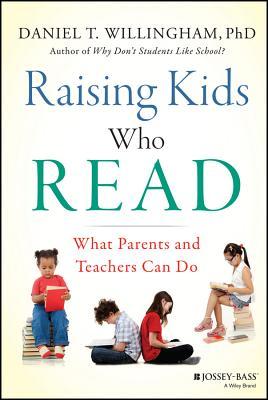I’m an avid reader. I like to post book reviews here. I also add extractions of highlights and favorite quotes in the form of JSON payloads created with a tool I wrote called AmaJSON.
Lost Connections by Johann Hari

 Rating: 4.0 / 5.0
Rating: 4.0 / 5.0
The cruelest thing about depression, she said, is that it drains you of the desire to be as fully alive…(Lost Connections, 97)
As I’ve grown older, a staggering number of people have quietly confessed to me that they’re suffering from depression; that they’ve taken up anti-depressant (SSRI) medication, analgesic cannabis, CBD use; or that they feel no association to or joy from their religious/professional/social lives. Talking with a friend about it recently, the metaphor we arrived at was: “It’s like normal life but with the Technicolor ™ turned off or the sound turned monophonic.” The world wasn’t gone, it was just low-fi.
In this muted reality, my friends and loved ones faced a struggle, alone. This loneliness is made worse by the fact that conventional wisdom holds that artists (Sylvia Plath, Virginia Woolf, Ernest Hemingway) and geniuses (Boltzmann, Ehrenfest, Erdös) are the ones prone to depression, not us.
Yet American rates of suicide, particularly among the “not-sensitive,” working-class, “man’s men” of the no-college education, white demographic are surging. It seems no coincidence that this is the same demographic who’s recently driven the opioid abuse epidemic.
My hypothesis (with no scientific basis) is that we as a society are exhausted from modern life (“influencers”), modern noise (“Swede-programmed pop music”), modern distractions (“Red dots with numbers on smart phones”), modern struggle (“Will no one call me back about whether I need surgery or not?”), and grinding capitalism. Some are simply and permanently opting out. To get a better sense of what was at play, I turned to Johann Hari’s book, Lost Connections. The book provides a compelling thesis: that depression is the natural and right reaction to a society whose operations are at odds with our evolutionary prerogatives. Writes Hari: “…we have been left alone on a savanna we do not understand, puzzled by our own sadness (90).”
If you’re short on time, most of the major points addressed in the book are covered in an hour-long conversation between Hari and Sam Harris on the latter’s podcast.
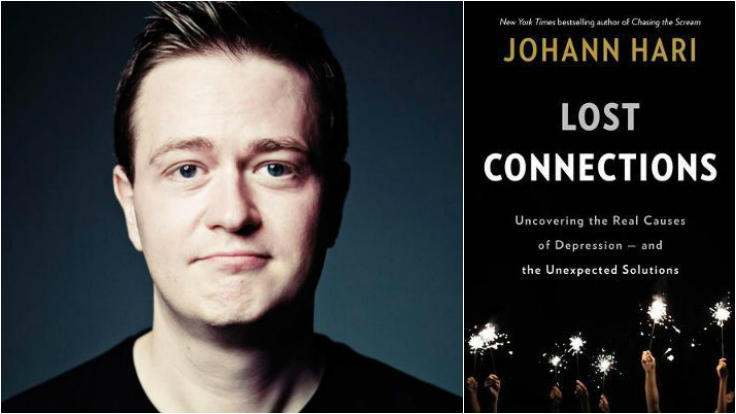
And Man Created God

 Rating: 3.0 / 5.0
Rating: 3.0 / 5.0
In 2013, I purchased And Man Created God amid a wave of the rebirth of a rationalist, athiest wave of thinkers coming to the fore. In retrospect, this movement is commonly called New Atheism. Around that time, Christopher Hitchens published God is not Great; Sam Harris, The End of Faith; and Richard Dawkins, The God Delusion. Amid this shift in honest discussion of anti-theism, atheism, and belief, I was curious as to when and why theism became a core part of mankind’s lifestyle. Why posit this thing that so clearly lacks evidence? Whence this desire?
This books does not answer those questions. Indeed, they might not have any answers that can be reliably extracted from the historical record. Rather, the book performs an inventory on the characters and propositions of religions near the beginning of the common era (AD, if you’re old school) and what happens to them around the time of the rise of Christianity.
In the time covered, religions had reached a stunning level of vibrancy and diversity: god-kings of Africa, an organized Greco-Roman pantheon, the sons and daughters of jealous Yahweh, the binary split of evil and good in Zoroastrianism, etc. By the end of this period, the widest-reaching religions that will spread to the most adherents have adopted a common character:
urbanist, universalist, personalized mystery religion appealing to supernatural agents of divine law on behalf of the humiliated.
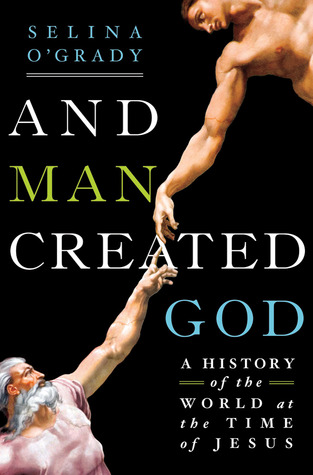
The Art of Logic
 Rating: .25 / 5.0
Rating: .25 / 5.0
I thought this book was dreadful, and it is one of the few books I’ve tossed in the recycling bin after reading.
In the 90’s, I went through notepads and erasers grinding through the work required to earn my philosophy degree’s required symbolic logic credit. I took simple proofs to dead-end after dead-end. I remember silently scratching away at sheet after sheet of green engineering paper that had been gifted to me by my roommate Justin on many late nights trying to get those damnable proofs to work out. Every failure or wadded-up paper was an opportunity; it was a chance to start over and see the problem differently. It was laborious, but I felt better after every surmounted obstacle.
Every textbook section or class would introduce a new spell: DeMorgan’s Theorems, modus ponens, modus tollens, “existential instantiation,” etc. and then throw terse, dense premises at us that we must transform to a conclusion. It’s in this class, under the guidance of my then-TA, Tracy Lupher, that I learned debugging in its most essential form. I eventually earned an A in the class, acing the final. My 5th edition of Irving M. Copi’s “Symbolic Logic” will travel with me as long as I have a pulse as a testament to that challenge.
As such, I take logic pretty seriously. Decades on now, I still love the topic and, sadly, have gotten a bit rusty. While visiting Foyle’s in Charing Cross last year, I saw The Art of Logic and thought a refresher from a “lay” book would be nice. As a writer of curriculum, I’m always keen to see how others take the difficult palatable as well, so I thought the book might serve in both of those capacities.
Sadly, my high expectations for this book were not realized. Instead, it:
- Failed to provide substantial footing as an introduction to logic
- Lost its way both by structure and poor editing
- And had an odd fixation with using distracting and contentious social-justice scenarios for demonstrating the poorly-introduced logical concepts — and I’m a liberal!
In total, my dislike for this book was so great I had to write a lengthy post about it. I’ve included notes about the few bright spots as well.

Reed & Kellogg's Graded Lessons in English

 Rating: 4.5 / 5.0
Rating: 4.5 / 5.0
As I mentioned elsewhere, I bought a copy of Reed & Kellogg’s Graded Lessons in English: a grammar book in the Euclidean pedagogical tradition dating from the late 19th. Having read it, I really enjoyed it and extracted notes from it; since the material builds axiomatically, proposition by proposition, it’s very easy to extract notes for.
I think there are two good reasons for a modern person to read the book.
- It is a clear, reasoned, adult-ready book of the grammar of the English language. I’m not sure it’s the best way to learn English, but as a summary, or a review, or a coalescing document, it’s lucid and enjoyable.
- It introduces the abstraction of the sentence diagram as a learning aid. I think this is worth seeing in the primary source for two audiences:
- Those who create learning materials: How the learning aid and knowledge organizing tool is introduced (the diagram) never loses sight of the fact that it is in service to the material, it is not an end in itself. That’s worth remembering!
- Those who need tools for studying other grammar (linguists, foreign language learners, etc.) Knowing the grammatical terms and their notation in English sets one up for porting a diagramming framework to other languages under study
Find my notes after the jump
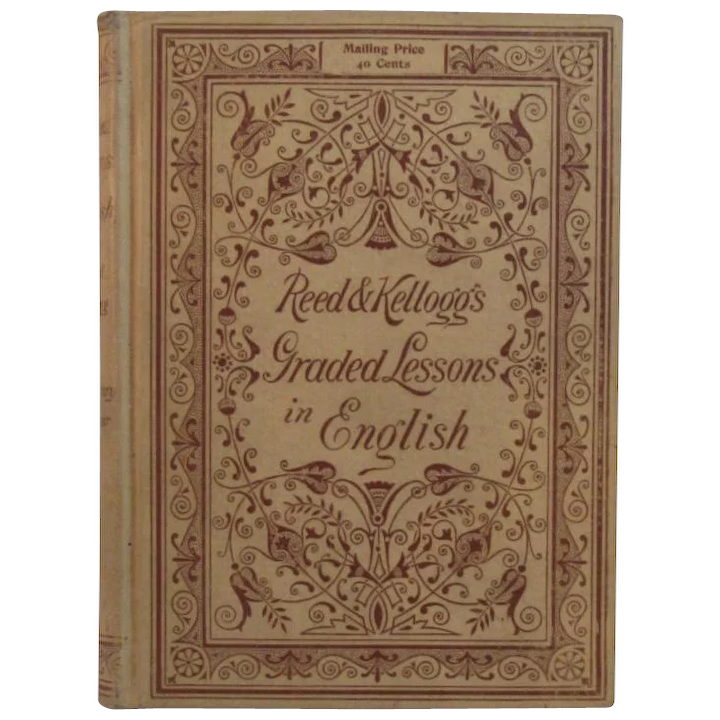
All the Pretty Horses

 Rating: 4.0 / 5.0
Rating: 4.0 / 5.0
That this book is worthy and carefully crafted is a mystery to no one. The language is spare and spare and has, honestly, a faint patina of gimmick on it — but for a powerful meditation of a young man facing adulthood set amid conceits of absolute brutality, it stands singularly along with the other McCarthy I’ve read: The Road.
Homegoing
 Rating: 3.0 / 5.0
Rating: 3.0 / 5.0
Homegoing reminds me a lot of a blend of two novels: Americannah and The Underground Railroad by Colson Whitehead. I was reminded of Americannah because I was eduated about African history from an African perspective. In particular, Gyasi tells the bitter truth that the Original Sin of Africa was tribes raiding each other to sell the conquered off as slaves to the British. In the story Asante and Fante warriors are played against each other first for profit and then for subjugation by the English crown.
At the personal dimension this interplay leads to one line of relatives collaborating and then being subjugated; the other familial line are sold into American bondage, ferried by ships full of Death to America. This line follows much of the detail of The Underground Railroad but focuses on sharecropping and what life after Reconstruction’s abortion looked like. This line leads from the South through the Great Migration to the Ivy League.
And here the stories rejoin: the severed halves rejoin, ignorant of their role in each others’ lives, but fully aware of the preciousness of Africa.
The plot moves interestingly between one family line’s next-generation to the other family line’s next-generation starting from an original primordial mother. The pacing is fast and, like Adichie, the craft of sentences is better than the actual plot. I’ve included my highlit notes after the jump.
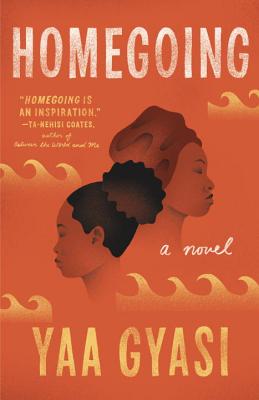
In Pieces by Sally Field
 Rating: 4.0 / 5.0
Audio Rating: 4.5 / 5.0
Rating: 4.0 / 5.0
Audio Rating: 4.5 / 5.0
I don’t know which Sally Field it is people encounter these days. The loving matriarch of Mrs. Doubtfire, Forrest Gump, or Punchline? Or is it the inanity of Gidget and The Flying Nun? Or is it the feminist icons built on stunning acting chops like Norma Rae or Sibyl? For me, I was in that space between these extremes: “Gidget” in syndication during the summer and (holy cow!) “Sibyl” in a high school psychology class (even as her character idly flopped about in Mrs. Doubtfire lacking any intelligible motivation). I decided to listen to this memoir to hear what her life was like.
It was much more than I expected (but aren’t all lives?), much heavier, much graver, and much more vulnerable. Ms. Field, at this time in her life, is putting her whole self out there for us to see and is bravely pointing to every wound, every vulnerability, and every complex truth she can find. It’s so strong, so tragic, and so powerful that I don’t know of many other tales like it.
Owing to her supreme talent as a performer, the audio narration is outstanding. Her ear for script-writing means that we have a memoir defined by certain acting beats. She knows when she’s acting as her own voice-over, when she should externalize a thought process, and how to create a question in the listener that heightens tension toward a thematic resolution.
Behind the narrative of this actor’s transformation from an adorable Pasadena girl-next-door to someone who could go toe-to-toe with anyone in the Actor’s Studio is a stunningly vulnerable, vivid recounting of how a broken childhood haunts permanently and hurts until you face it.
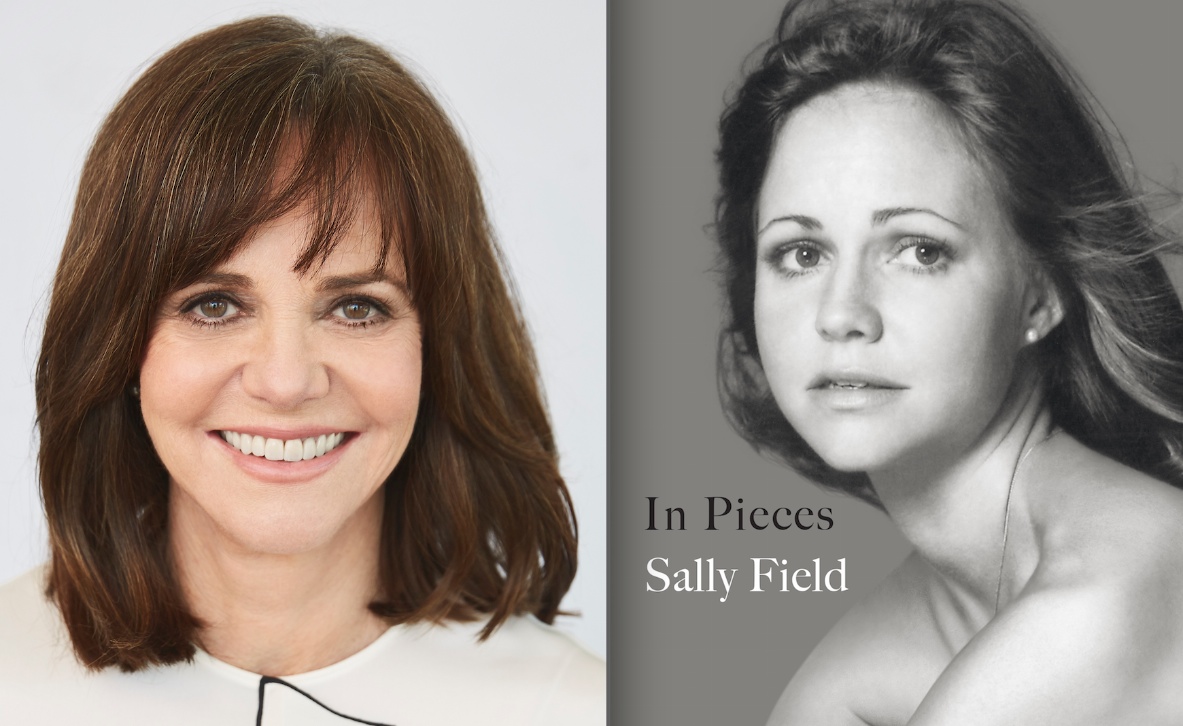
Manhattan Beach
 Rating: 2.0 / 5.0
Audio Rating: 3.0 / 5.0
Rating: 2.0 / 5.0
Audio Rating: 3.0 / 5.0
Coming off of facing and conquering some “high modern literture” in the last few months, I thought I’d tackle one final member of the cheered authors of the early aughts, Jennifer Egan. For the last several months her name and this book’s cover hung out over Symphony Space around the corner, needling me to read the book. Additionally, her previous novel A Visit from the Good Squad scored a Pulitzer, so I was expecting a strong showing. I, however, was not impressed.

How to Change Your Mind by Michael Pollan
 Rating: 3 / 5.0
Audio Rating: 3 / 5.0
Rating: 3 / 5.0
Audio Rating: 3 / 5.0
Introduction
Many of my best experiences being a son were with my Dad while we were driving somewhere on the weekend. It was during those times that my Dad’s mind would wander and he’d talk to me about whatever was on his mind (cars, school, and, uhm, sex) and I’d ask about whatever was on mine (what’s the stock market, why atomic bombs, and, uhm, sex). On one of those trips, I asked my dad where beer came from and ultimately why people made it. I remember the answer had something to do with barrels, rain, and this fundamental truth:
They caught a buzz and humans like getting buzzes.
Wow, that pretty much nailed a critical aspect of human nature for me.
At the time, I didn’t even know what a buzz was or what the metaphor “to catch one” meant, but Dad’s summation wasn’t far off. Fundamentally, we are Great Apes who like catching buzzes. An occasional flirtation with zymurgy, kefir, and kombucha confirmed Dad’s just-so tale: early alcohol was surely caused by natural yeasts in barrels mixed with rain consuming sugar to make alcohol in a time far lost to memory. It was an honest and surprisingly adult answer to give a young lad.
But I had no such space to ask about humans’ love of other drugs and thusly never did. It didn’t feel safe, this was the era of MADD, “Just Say No” and DARE.
ASIDE: Parents of now I’d warn you to be careful about which programs you let your children internalize. If they’ve been conditioned to proscribe curiosity, that means they’re not asking you. And if their curiosity isn’t being addressed by you, it’s likely being catered to by someone else who’s likely selling them something (looking at you, Pornhub) — possibly something that distorts a healthy but uncomfortable truth..
Many decades later, with cannabis now recreationally available in several states in the union, alcohol sales remaining strong, caffeine ubiquitous, and nicotine experiencing a renaissance in e-cigarettes, we’re seemingly coming to better grips (and therefore better policies) that are built on the fundamental truth my Dad shared: human love to get high.
The only questions remaining is which substances will be legally permitted and which will not? And how will be punish those who choose to fulfill this love or sell the means to fulfill it? Having long been an advocate for cannabis decriminalization myself, I thought I’d dig into these questions with Michael Pollan, the square of squares who wrote the Omnivore’s Dilemma. With the same journalistic style with which he exposed the problems of industrial scale food production, I figured Pollan could deliver a measured evaluation of the science, the value, and the undeserved demonization of psychedelics.

More about Pollan’s experience with psychedelics after the jump
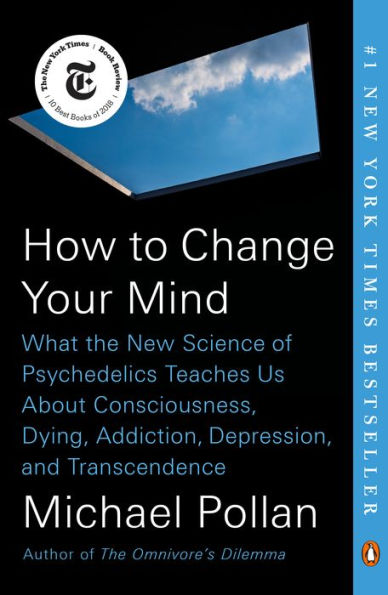
Americannah

 Rating: 4.0 / 5.0
Rating: 4.0 / 5.0
At work we formed a book club and Americannah was the first book we read.
The story was pretty conventional: Ifemelu, a Nigerian girl, grows up lower-middle class but upwardly aspiring in Nigeria with her family and friends including the handsome Obinze. Eventually she moves to the American East Coast and lives, camouflaged, within the American-Black experience. She lives as an exotic trophy of a white boyfriend, the insufficiently politically-active girlfriend to a somewhat narcissistic Yale intellectual during the Obama ascendancy, and ultimately as a single woman bound back to Nigeria to pursue a lost connection.
In parallel, her friend, Obinze, enters England illegally and works to evade immigration nets. His experience doesn’t seem to provide the same level of growth and kindness for it’s bound up in desperation. He scrabbles hard and tries to find a foothold in the soggy shores of England but fails. Ultimately Obinze is deported back to Nigeria where he must make a go at success on different terms.
While the plot was sufficient to carry the characters forward, I didn’t find that its internal structure was used in any novel way. The experiences were rather pedestrian and uninspired and felt like set-dressing where Adichie’s beautiful sentences could fall like gilded feathers onto set stages. Many times I didn’t care about the plot details but was attentively reading so that I could find the next immaculately-constructed one-liner from her pen. To wit:
- “How easy it was to lie to strangers, to create with strangers the versions of our lives that we have imagined.”
- Everybody is hungry in this country, even the rich men are hungry, but nobody is honest.
- Why didn’t she just ask ‘Was it the black girl or the white girl?’” Ginika laughed. “Because this is America. You’re supposed to pretend that you don’t notice certain things.”
Check out the notes after the jump for some wonderful quotes if you want a compressed version of the story.
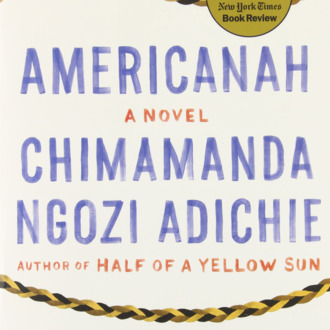
Rules of Civility

 Rating: 4.5 / 5.0
Rating: 4.5 / 5.0
TL;DR: If you’re looking for a summer read on a cross-country flight, I’d strongly recommend this one. I started page one during a long taxi out at SFO and happily read my way back to the beginning of our descent back into JFK. Perfect for a day on a plane or a day sur la plage.
Amor Towles’ Rules of Civility is a more enjoyable, realistic, and masterful imagining of the drama and the times in the gap between the height of the Roaring Twenties and the beginning of World War II. Invariably any book that finds its timing in this area has to stand up next to Fitzgerald’s The Great Gatsby. It does this well and in fact shows it to be Gatsby’s better in several principal ways.
More after the break
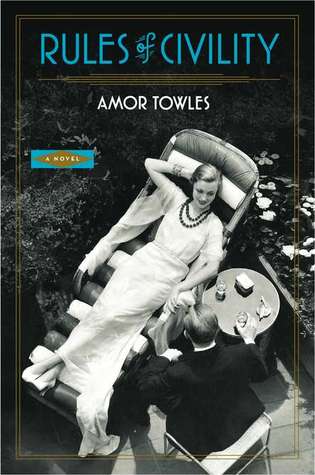
Inspectional Read: Raising Kids Who Read

 Rating: 3.0 / 5.0
Rating: 3.0 / 5.0
Here are my notes from my Inspectional Read of Willingham’s book. My upshot take away is this:
- Support learners learning to decode with zeal
- Give them many books that provide familiarity with many, many contexts inch-deep, mile wide
- Promote this as a primary means of acquisition, promote books as a resource, promote ignorance as an excuse to explore books and reading (not asking Siri or Alexa); they must “work through” the knowledge gain to etch the cortical pathways; nothing wrong with memorization of “scaffolding” facts
- Fight teens apathy toward reading by:
- Having established that we all (mom, dad, you) are readers
- Making other low-drag pathways (phone, TV, games, etc) higher-drag so that reading is a means for addressing boredom, curiosity, etc. It’s not the devices per se, it’s what the devices consume (time) so effortlessly against higher-payoff experiences
